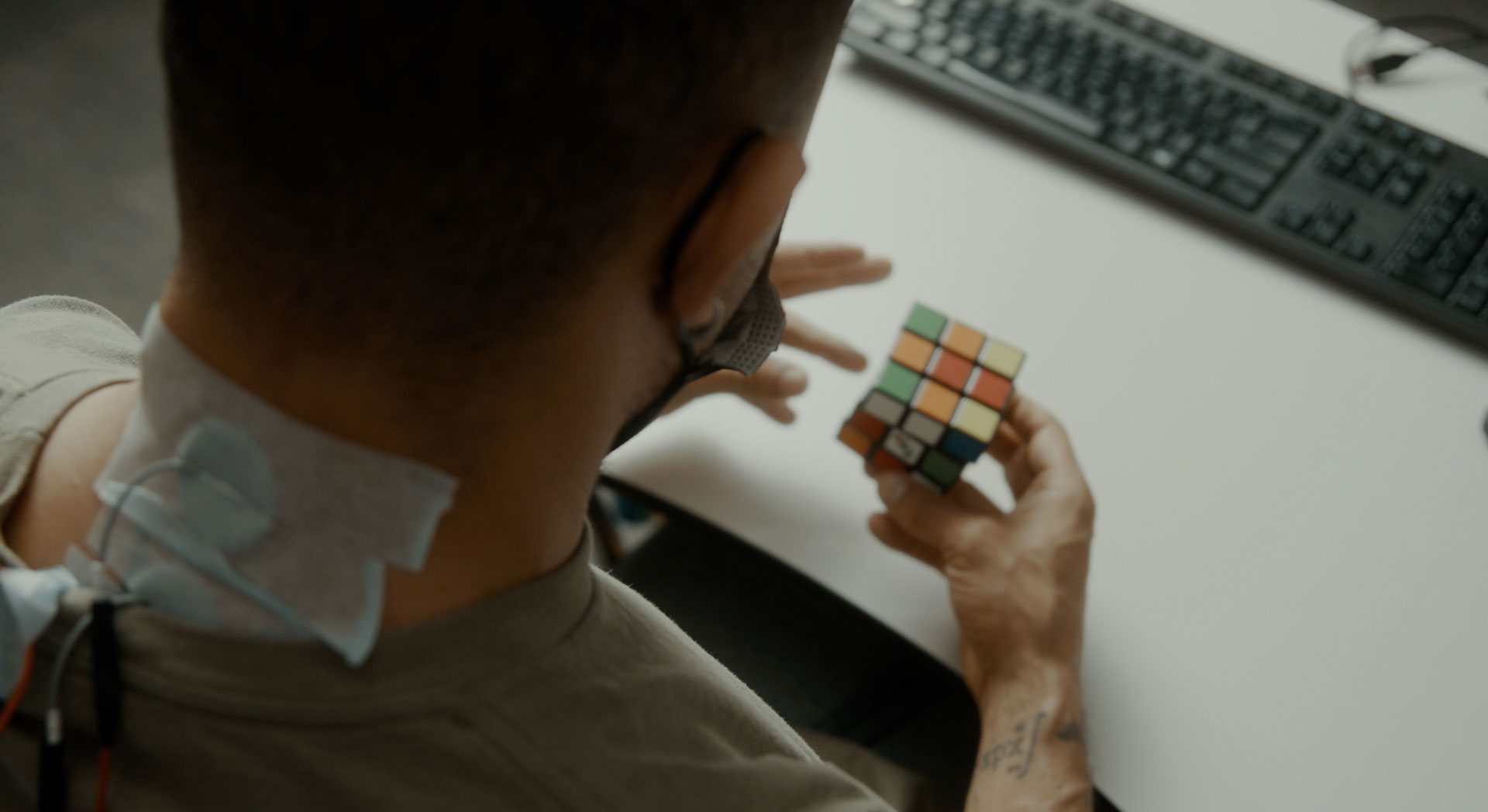Early Trial Reports Promising Results in Restoring Arm and Hand Functions for People with Spinal Cord Injury
A multi-site clinical trial found that a noninvasive form of electrical stimulation to the cervical spinal cord led to improvements in hand and arm function for people with tetraplegia due to cervical spinal cord injury (SCI). The results of the trial, published last month in Nature Medicine, reported that the stimulation treatment called ARCEX Therapy resulted in clinically meaning improvements in arm function without serious adverse events.
Spinal injury disrupts crucial communication pathways between the brain and spinal cord, often resulting in irreversible impairments, particularly in limb functions. The Up-LIFT Trial was a multi-center study that explored the potential of electrical stimulation to the cervical region of the spinal cord to restore impaired hand and arm function. The ARCEX Therapy device is a noninvasive technology that provides electrical currents to the spinal cord through electrodes placed on the skin over the affected cervical spinal cord regions. Previous preclinical and individual case studies looking at electrical stimulation of the spinal cord reported improvements to impaired neurological functions when stimulation was applied over segments of the spine that contain neurons involved in the control of certain functions; however, large-scale studies examining specific functions of specific treatment tools are limited.
The open-label trial enrolled 65 adults with cervical SCI between ages 22 and 75, with 60 completing the entire protocol, including at least 24 sessions of rehabilitation alone and an average of 25 ARCEX Therapy sessions, with follow-up assessments. Results revealed significant improvements in both strength and functional performance domains, with 72 percent of participants exhibiting improvements of strength and function in the hands and arms that corresponded to meaningful quality of life improvements.
Secondary effectiveness endpoints demonstrated superior responder rates after ARCEX Therapy compared to rehabilitation alone, highlighting the potential of this innovative approach in augmenting neurological recovery. Notably, participants exhibited sustained improvements in pinch force, prehension performance, and sensory outcomes.
Limitations of the study included its trial design not being a randomized-controlled study. The researchers said decades of studies suggest the limited impact of rehabilitation alone on neurological recovery and that neurological function recovery in people with tetraplegia is inherently variable, which were factors that did not support a randomized trial.
“These findings suggest there is great potential for the role that electrical stimulation of the spinal cord can offer people with tetraplegia when it is prescribed as part of a rehabilitation care treatment plan,” said study co-investigator Randy Trumbower, PT, PhD, director of the INSPIRE Laboratory and executive director of the Travis Roy Center for Enhanced Independence at Spaulding Rehabilitation. “Our findings are very encouraging; the results show clinically meaningful impact to those with SCI. However, future studies are warranted to better understand the long-term benefits of this therapy within the home and community.”
About Spaulding Rehabilitation
A member of Mass General Brigham, Spaulding Rehabilitation includes Spaulding Rehabilitation Hospital, with a main campus in Charlestown the 2nd ranked in the nation for rehabilitation by U.S. News & World Report, along with Spaulding Rehabilitation Hospital Cape Cod, Spaulding Rehabilitation Hospital Cambridge, Spaulding Rehabilitation Nursing and Therapy Center Brighton, and over 25 outpatient sites throughout Eastern Massachusetts. An acclaimed teaching hospital of Harvard Medical School and home to the Department of Physical Medicine and Rehabilitation, Spaulding is recognized as a top residency program in the U.S. in the Doximity Residency Navigator. Spaulding also was recognized by the 2023 Disability Equality Index as a “Best Places to Work for Disability Inclusion.” For more information, visit www.spauldingrehab.org.
Media Contact
Ryan Jaslow
rjaslow@mgb.org

